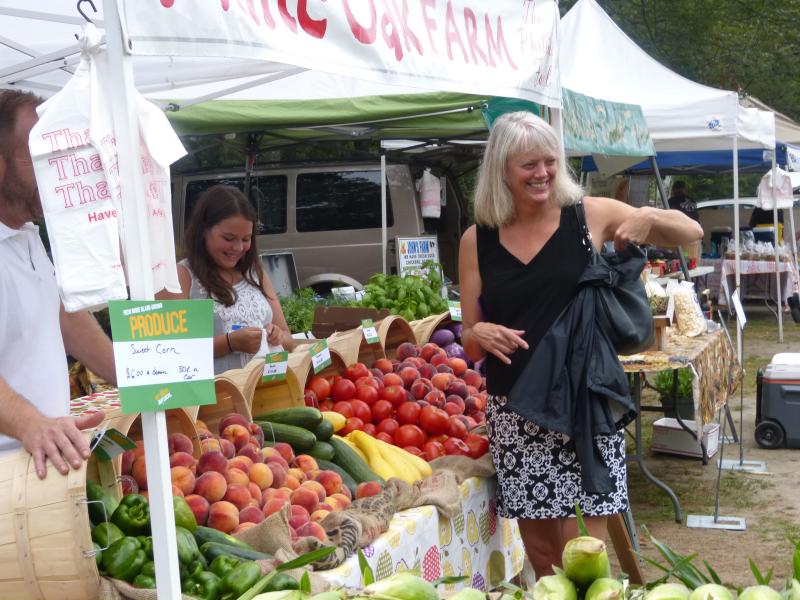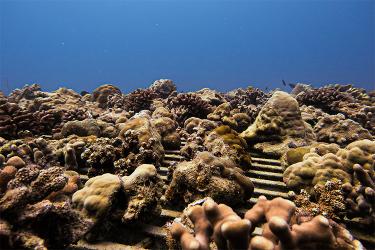To wrap up Women’s History Month, we sat down with Janet Coit, NOAA Fisheries Assistant Administrator, to find out more about her career path, passions, and perspective on leading NOAA Fisheries. Explore her answers below.
Tell us a little about yourself. What are a few words that describe you?
I am a mom, wife, daughter, and sister. A reader. A conservationist, who has always loved nature and learning. I am an extrovert, drawing energy from people. But I need time to myself and like to restore my soul in nature. The older I get, the more I realize the importance of spending time with friends and loved ones. I am also super passionate about making a difference in the world.
Where did you grow up?
Little known fact: I did not grow up on the coast! I grew up in Syracuse, New York, the hub of New York State. I fell in love with nature at my family’s very rustic camp—or cabin—in the Adirondacks. We have a place you can get to by boat with no electricity and no plumbing! Yes, that means an outhouse. But this place was a North Star in my life. It’s still “off the grid,” and helped me appreciate wild places. That connection to a natural place seems to be at the heart of many careers in conservation and environmental policy. For those in the fisheries world, maybe that’s out on an estuary or on the open ocean. I still visit the cabin and feel every cell expand when I’m there. My children have grown up there, too.
Is there anything about your childhood or where you grew up that influenced your career path?
I grew up fishing with my father and grandfather, so my ties to fisheries began early. But I didn’t even see the ocean until I was 15 years old, when a friend took me to Maine. And then I moved to the Ocean State!
What is your educational background?
I attended Dartmouth College in Hanover, New Hampshire. The college is right on the Connecticut River, which influenced my decision to attend as it was easy to get out in nature. I hold a law degree from Stanford Law School, where I was president of the Environmental Law Society and a member of the Environmental Law Journal. Environmental law and policy has long been a passion.
How did you get to be the head of NOAA Fisheries?
It’s been a journey. I’ve been working on environmental issues, natural resource management, and stewardship for more than 30 years. Before my time at NOAA, I directed the Rhode Island Department of Environmental Management for more than 10 years, working to improve natural resource conservation, promote locally grown food, including seafood, and address the climate crisis. I also served as the state director of the Nature Conservancy. Earlier in D.C., I was Counsel to the U.S. Senate Environment and Public Works Committee, chaired by the late Senator John Chafee, where I focused on reauthorization of the Endangered Species Act and other major environmental statutes. A common thread throughout my career has been the connection between policy and science.
Fast forward to today, and I’m dedicated as ever to helping protect the marine environment and promote sustainability, whether that’s with marine life, seafood, or climate change issues.
What do you like to do outside of work?
Two big passions are kayaking and reading. I kayak frequently in Rhode Island and daily when I’m in the Adirondacks. That’s when I enjoy going out on the lake at night time. The water is smooth. The Milky Way is so evident and the stars are so bright. Reading is something I’ve enjoyed since I was a little girl. And there are so many amazing books to choose from! I recently devoured A Thousand Ships by Natalie Haynes, which tells the story of the Trojan War through the perspective of the women who were involved as heroes, victims, and muses. I read Know My Name by Chanel Miller in one sitting. This was a powerful one. Mountains Beyond Mountains by Tracy Kidder is a magnificent nonfiction account of the late Dr. Paul Farmer, who set to work solving global health problems through a closer look at the interactions between politics, wealth, social systems, and disease. Currently, I am reading an autobiography of Susan Rice and a biography of E.O. Wilson.
I also love exploring Rhode Island's waterways, farmers markets, historic sites, and wild places. I like to garden. I hope to see more live music this year.
Is there a book, quote, or person that influenced you to be the person that you are today? Tell us why.
Rachel Carson has been a lifelong inspiration for me. Her book Silent Spring was published a year before I was born. A world class marine biologist, author, and conservationist, Carson was truly a force to be reckoned with. She faced big challenges in her work. But she refused to be intimidated. That spirit to preserve and stay committed to positive change lit a spark. Her courage and contributions inspired me to speak up and to pursue an environmental career.
Carson also described a “sense of wonder” that filled her whenever she observed creatures out in the world. That clicked. I still marvel at all kinds of life—from the miniature to the majestic—whenever I am lucky enough to witness it.
What does Women's History Month mean to you?
It’s an opportunity to shed light on the many ways that women throughout time have stepped up, made the world better, suffered the consequences of war, and contributed in every way. Often their stories aren’t told. This is a time when boys and girls, men and women, can all learn more about women and the ways they experience and contribute to the world.
Representation matters. In the various leadership roles I’ve had, I think about being a role model for boys as well as girls. I also remember barrier breakers like Rachel Carson and Sylvia Earle, who insisted that they could play a role in science organizations. We are indebted to them. We are following in their footsteps, and we want to continue that trajectory at NOAA.
This is also a time that reminds me there is more work to be done. We know that teams are stronger and problem solving is better when they have all types of people. One goal of mine is to make sure we have more diversity and inclusion at NOAA Fisheries. I’m thinking about areas that lack female leaders or science staff. It’s our goal to foster, support, and encourage women to get involved, take risks, explore new opportunities, and ensure we have more balance and diversity of views across NOAA Fisheries. We would all benefit from that. Women often bring strength in many areas, including relationship building, and this brings different dimensions to teams.
Who is the most influential woman you know? How does she inspire you?
My mom is such an incredible role model. She was born in 1927. After having four children, she went back to school to contribute financially to the family. She had been a fine arts major, so she became an art teacher. She went on to earn a Master’s degree, become a high school art teacher, and eventually, head of the art department. She had a 25-year teaching career. She took her students all over the world, to places like Thailand, India, Japan and Australia. At 94, she is still doing her art. She is funny, independent, and brings so much joy to so many people. She’s an optimist and part of that greatest generation.
Secretary Gina M. Raimondo is a tremendous role model as well, and she cares so deeply. As the first female governor of Rhode Island, she knows a lot about breaking barriers. She does a “Governor for a Day” for fourth grade girls, and teaches about being a mentor. She is an undaunted, bold, and innovative leader. Her leadership at the Rhode Island level is one of the reasons I wanted to join the Department of Commerce.
What does being a career civil servant mean to you?
I’ve always wanted to have a career that is dedicated to making things better. To tackle big issues and try to make things better for wildlife, for people, and for a sustainable future. A career in public service is very rewarding—you can have a direct impact on people’s lives and livelihoods. At NOAA Fisheries, the work we do is a real privilege. Whether it’s doing our part to help amazing creatures survive, managing fish populations, or focusing on coastal resilience and habitat restoration, it all has a lasting impact.
What advice would you have for someone interested in a career at NOAA Fisheries?
Explore science. In my own career, I wish had taken more science courses. If you want a career in environmental policy and conservation, make sure you study science so you can be informed about how the natural world works. At NOAA, I am struck with how many people have a deep knowledge of science and are doing policy work. Explore science whenever you can!
Find your passion. Find something you wake up in the morning and are excited to do. Financial security is a beautiful thing, but when you think about your professional career and your life on earth, feeling connected to what you are working on is paramount. At NOAA Fisheries, that dedication to our mission is there, and it sustains us even in the difficult times.
The heart of NOAA Fisheries is the people who work here. We are a very enthusiastic bunch … whether it’s fish, whales and other creatures, habitats, science, or all of the above! Use your passion as a compass, and go from there.









